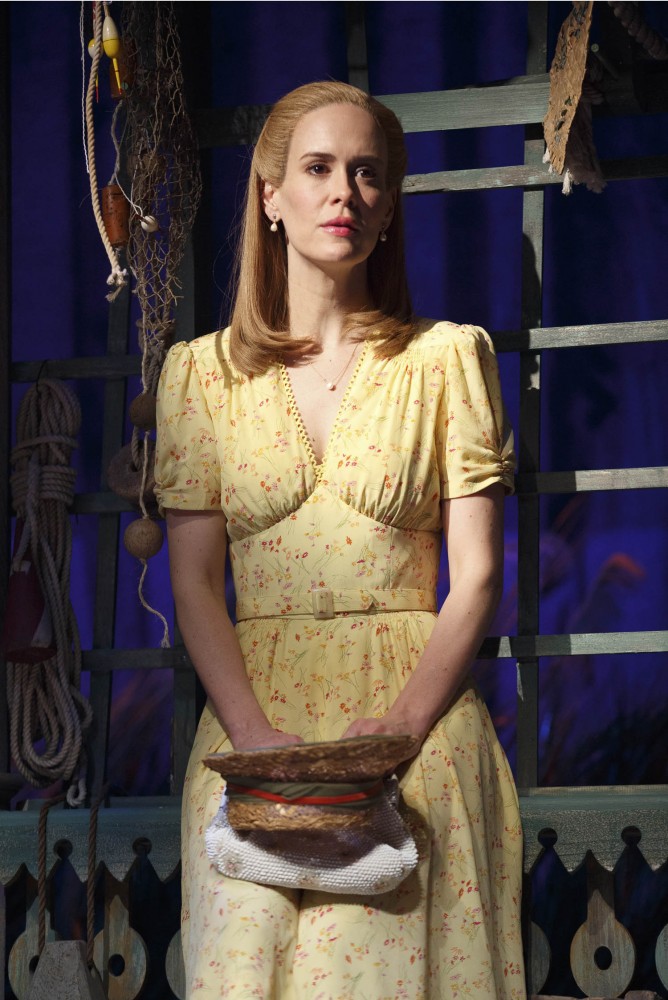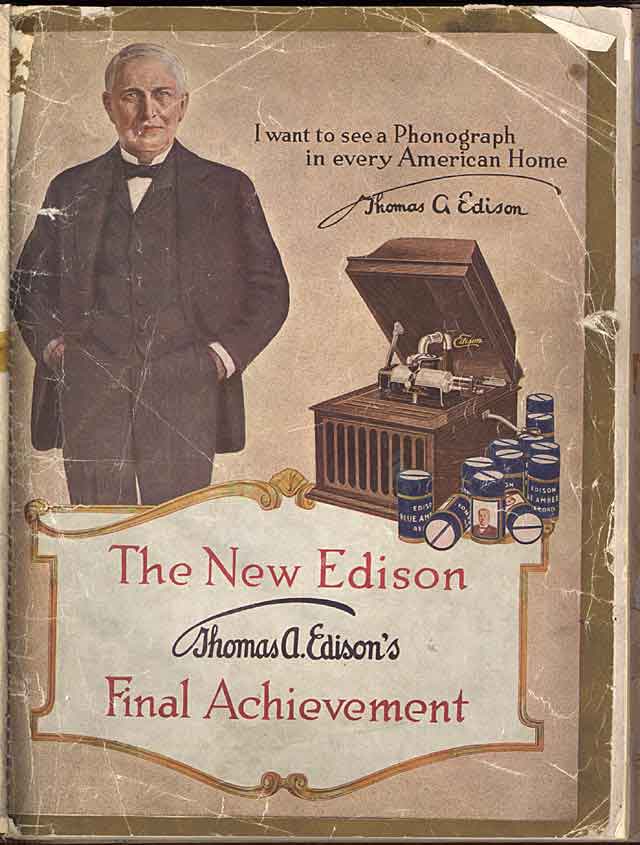“Given the present state of the economy, I can’t imagine that anyone on Capitol Hill sees the preservation of sound recordings as a top priority. But Congress can do one important thing that will help to save our sonic history without costing a cent: We need to straighten out America’s confused copyright laws, and we need to do it now…”
Archives for March 2013
TT: Hoping against hope
In today’s Wall Street Journal drama column I report on three outstanding off-Broadway shows, Talley’s Folly, Belleville, and The Old Boy. Here’s an excerpt.
* * *
Lanford Wilson walked a fine line between sentiment and sentimentality. In “Talley’s Folly,” the story of two no-longer-young people who can’t quite manage to fall in love, he stayed on the right side, and the results of his restraint were profitable in every way. Not only did the play, which opened Off Broadway in 1979, move uptown and run for 286 performances, but it won Mr. Wilson a Pulitzer Prize. Now “Talley’s Folly” is receiving its first major New York production since 1980. No, it’s not on Broadway–the Roundabout Theatre Company is mounting the play at the Laura Pels Theatre, its Off-Broadway house–but it ought to be. Danny Burstein and Sarah Paulson give solid-sterling performances, while Michael Wilson’s staging is scrupulously and rewardingly attentive to the script….
 Mr. Burstein, who made a deep impression in the Broadway revivals of “Follies” and “Golden Boy,” does it again here, giving a performance that invites your sympathy without begging for it. Ms. Paulson is, if possible, better still, the very model of an inhibited woman (her close-to-the-chest body language tells the story in a glance) who longs to be something other than what she is….
Mr. Burstein, who made a deep impression in the Broadway revivals of “Follies” and “Golden Boy,” does it again here, giving a performance that invites your sympathy without begging for it. Ms. Paulson is, if possible, better still, the very model of an inhibited woman (her close-to-the-chest body language tells the story in a glance) who longs to be something other than what she is….
Three of Amy Herzog’s last four plays, “After the Revolution,” “4000 Miles” and “The Great God Pan,” have been seen in New York since 2010, and the original production of “Belleville,” which was produced two years ago by the Yale Repertory Theatre, has just transferred to the New York Theatre Workshop. It confirms my conviction that Ms. Herzog is America’s most interesting young playwright. I would have said “promising,” but that word no longer applies. At 33, she is a fully formed artist with impressively smart things to say about the tone and texture of contemporary American life….
A.R. Gurney, the reigning poet laureate of WASP self-doubt, has revised “The Old Boy,” first seen in New York in 1991, for a revival by Keen Company, one of New York’s best Off-Broadway troupes. It’s a prep-school tale with a modern twist in which a slick New England politician (Peter Rini) finds out that one of his best prep-school buddies (Chris Dwan) was a homosexual who left his wife (Marsha Dietlein Bennett), developed AIDS and killed himself. Mr. Gurney has turned their three-cornered relationship into a very well-made play–all the corners are tucked in with the utmost neatness–that suggests an American version of one of Terence Rattigan’s stiff-upper-lip dramas of British middle-class angst….
* * *
Read the whole thing here.
A trailer for the original Yale Rep production of Belleville:
TT: Catching an echo
Today’s Wall Street Journal “Sightings” column is devoted to the Library of Congress’ National Recording Preservation Plan, a document that will be consuming interest to anybody who cares about old records. Here’s an excerpt.
* * *
What is a library? Until fairly recently, the answer to that question was simple: It’s a storehouse for pieces of the past, reduced to words printed on paper. The fact that books are increasingly “printed” on something other than paper doesn’t change the fundamental purpose of libraries. They are our collective memory. Without books and the libraries that preserve them, we wouldn’t know what happened in the past, and we couldn’t use that knowledge to shape the future.
 Fortunately for posterity, a well-made book isn’t hard to preserve. But in 1877, Thomas Edison invented a new way to preserve pieces of the past. He called it the phonograph, and it took a long time for librarians to figure out that the echoes of speech and music that Edison and his successors etched on discs were as important a part of our collective memory as the words that Johannes Gutenberg and his successors printed on paper.
Fortunately for posterity, a well-made book isn’t hard to preserve. But in 1877, Thomas Edison invented a new way to preserve pieces of the past. He called it the phonograph, and it took a long time for librarians to figure out that the echoes of speech and music that Edison and his successors etched on discs were as important a part of our collective memory as the words that Johannes Gutenberg and his successors printed on paper.
Nowadays most people understand the historical significance of recorded sound, and libraries around the world are preserving as much of it as possible. But recording technology has evolved much faster than did printing technology–so fast, in fact, that librarians can’t keep up with it. It’s hard enough to preserve a wax cylinder originally cut in 1900, but how do you preserve an mp3 file? Might it fade over time? And will anybody still know how to play it a quarter-century from now?…
The Library of Congress recently issued a 78-page document called “The Library of Congress National Recording Preservation Plan” whose purpose is to ensure that our descendants will be able to listen to the sounds of the past long after we’re dead and gone. It contains 32 recommendations, most of which, I suspect, will be filed and forgotten. Given the present state of the economy, I can’t imagine that anyone on Capitol Hill sees the preservation of sound recordings as a top priority. But Congress can do one important thing that will help to save our sonic history without costing a cent: We need to straighten out America’s confused copyright laws, and we need to do it now….
* * *
Read the whole thing here.
TT: Almanac
“Habit is necessary; it is the habit of having habits, of turning a trail into a rut, that must be incessantly fought against if one is to remain alive.”
Edith Wharton, A Backward Glance
TT: So you want to see a show?
Here’s my list of recommended Broadway, off-Broadway, and out-of-town shows, updated weekly. In all cases, I gave these shows favorable reviews (if sometimes qualifiedly so) in The Wall Street Journal when they opened. For more information, click on the title.
BROADWAY:
• Annie (musical, G, reviewed here)
• Once (musical, G/PG-13, nearly all performances sold out last week, reviewed here)
OFF BROADWAY:
• All in the Timing (comedy, PG-13, closes Apr. 14, reviewed here)
• Avenue Q (musical, R, adult subject matter and one show-stopping scene of puppet-on-puppet sex, reviewed here)
• Donnybrook! (musical, G/PG-13, suitable for children capable of enjoying a love story, closes Apr. 28, reviewed here)
• The Fantasticks (musical, G, suitable for children capable of enjoying a love story, reviewed here)
• The Madrid (drama, PG-13, closes May 5, reviewed here)
• Passion (musical, PG-13, extended through Apr. 19, reviewed here)
• The Revisionist (drama, PG-13, closes Apr. 21, reviewed here)
IN LOS ANGELES:
• Tribes (drama, PG-13, remounting of original off-Broadway production, closes Apr. 14, original production reviewed here)
IN SARASOTA, FLA.:
• You Can’t Take It With You (comedy, G, closes Apr. 20, original production reviewed here)
CLOSING SATURDAY IN ORLANDO, FLA.:
• Othello (Shakespeare, PG-13, reviewed here)
TT: Almanac
“An unalterable and unquestioned law of the musical world required that the German text of French operas sung by Swedish artists should be translated into Italian for the clearer understanding of English-speaking audiences.”
Edith Wharton, The Age of Innocence
TT: Snapshot
Anton Chekhov’s Swan Song, performed by John Gielgud and directed by Kenneth Branagh. This telecast was filmed in 1992:
(This is the latest in a series of arts-related videos that appear in this space each Monday and Wednesday.)
TT: Almanac
“It was part of her discernment to be aware that life is the only real counselor, that wisdom unfiltered through personal experience does not become a part of the moral tissues.”
Edith Wharton, Sanctuary
